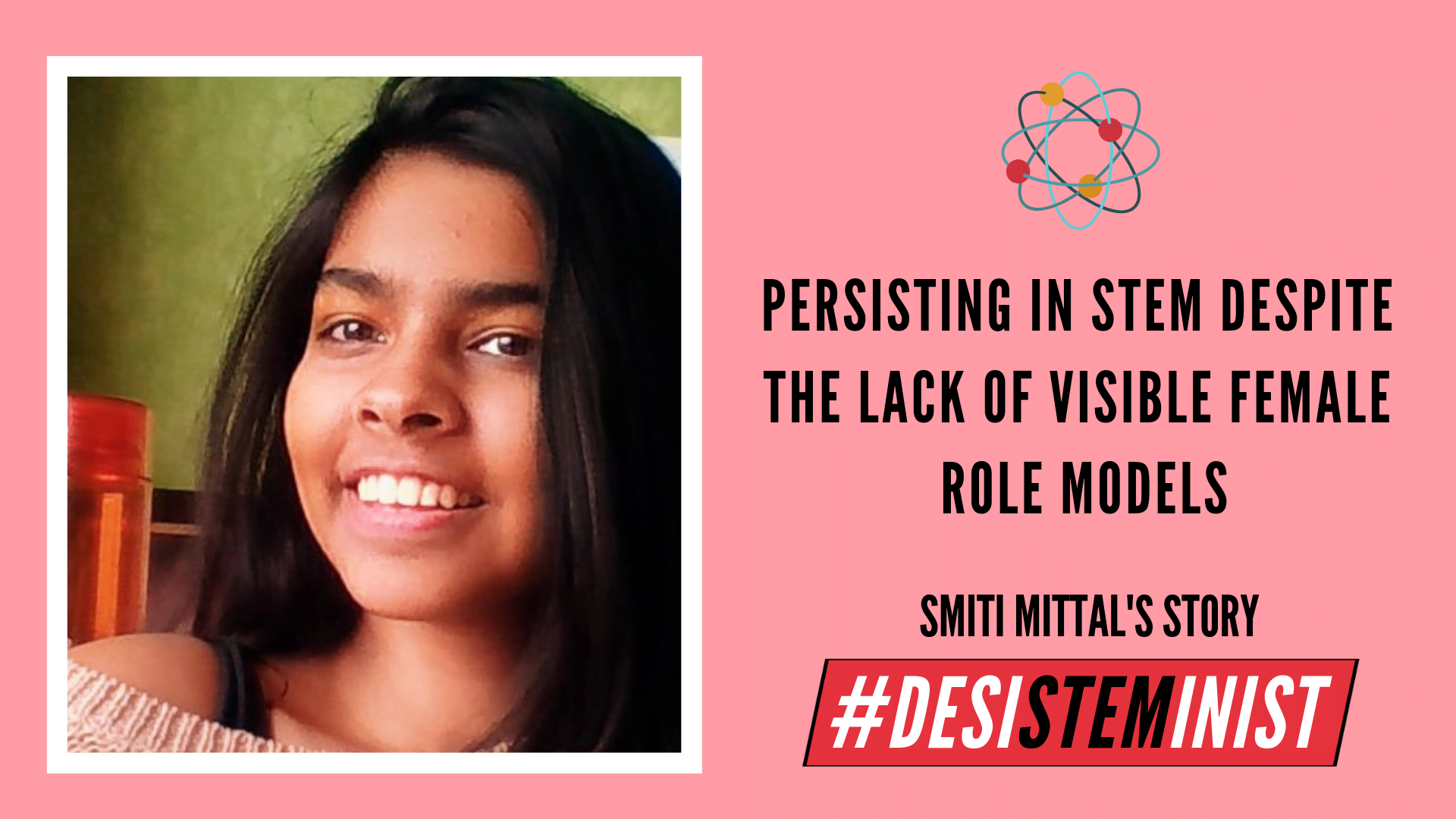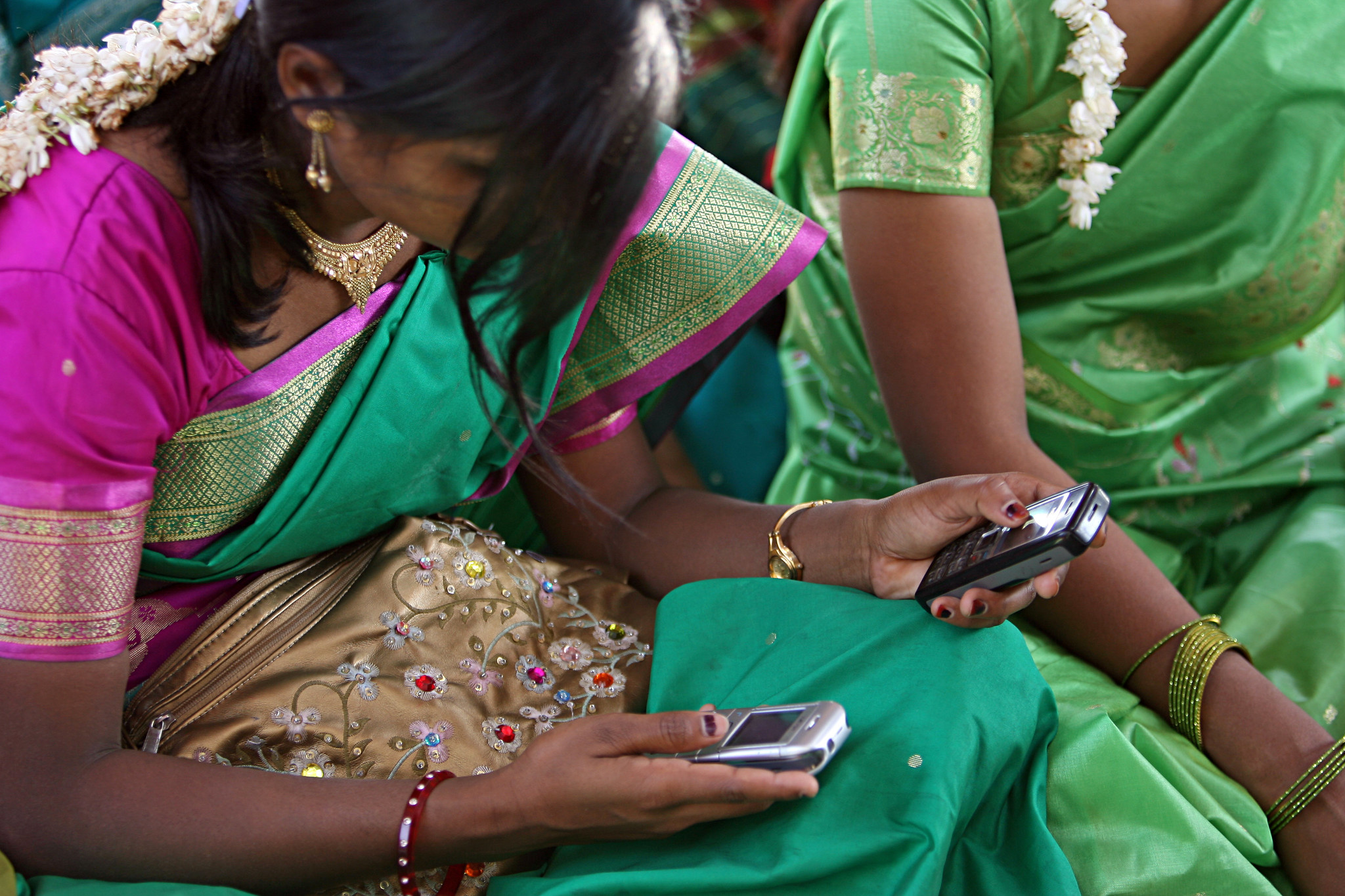Editor’s note: #DesiSTEMinist is a campaign to celebrate women in the field of STEM and highlight their contributions.
Posted by Smiti Mittal
At the beginning of 9th grade, an eager but much more perpetually confused version of myself fumbled around in her bag for her computer application books and started climbing the stairs to the lab. The prospect of actually being able to choose a subject that I would study amazed me. Although naturally drawn to computer applications as the daughter of two IITians, I was resistant to doing exactly what they had done and my jury was still out on the ‘Group 3’ subject choice that ICSE offers.
I walked into class and was immediately met with some discomfort that hung over the room, transmitting itself through raised eyebrows unto me. I immediately realised I was the only girl in that class. Although I ended up choosing economic applications – not because I disliked coding but because I was desperately excited by consumer psychology – I’d be lying if I said that the alienation I felt in that room had no role to play in my decision.
My nani’s parents got her married off young so she could never realise her dream of becoming a doctor. My mother made it as one of the only 15 girls in her entire Engineering batch. Now the baton had been passed on to me.
A year or so later, I was mature enough to see that the inherent gender bias in STEM would follow me around for the rest of my life and that it was up to me to hold my passion for discovering how things work above others’ judgements of my capabilities. I drew inspiration from the successful STEMinists I found around me. My
Also read: Do Men In STEM Hate Women? | #DesiSTEMinist
I walked into 2017 with this empowered mindset. It was disappointing then, that while applying for Stanford‘s highly selective maths camp or sitting for the Regional Mathematics Olympiad, everybody (including me) started to think that even if I did qualify, it may only be because of my gender. Stanford has historically been selecting one girl and one boy from India. The RMO had a special quota of 5 girls that got selected through lowered cut-offs to enhance gender diversity in the qualifying pool. I was afraid of being unworthy of these achievements. While I saw their merit, I did not want to know that I was succeeding just because I was a girl.
In both these scenarios, the outcomes reminded me that ability in STEM is in no way a gendered concept. My batch of Stanford’s Maths Camp was one of the first where 2 girls were selected from India. At the RMO, I qualified not through the special
Today, as I prepare to enrol as a full-time student in Stanford‘s Class of 2023, I hold no biases or doubts in my mind regarding the gendered limitations to my capabilities. I know that I will find myself in countless classrooms in the future with no other female in sight. I know that there will be people that will doubt my capability. There will be those that will attribute my position or success to “oh but you’re a girl and they wanted diversity in their program.” I know that these scenarios lie ahead, and yet they do not faze me. In fact, I consider it my personal responsibility to focus on what I truly love and by my merit – by the papers I publish and the ways in which I manage to change the world (however minutely) – show the world that STEM isn’t inherently a man’s playing field.
Today, as I prepare to enrol as a full-time student in Stanford‘s Class of 2023, I hold no biases or doubts in my mind regarding the gendered limitations to my capabilities.
I want to be the inspiration that I have found in others, to the future of this country. I want to shake them up and make sure they know what they are capable
Also read: How My STEMinist Mother Paved Way For My Future In STEM | #DesiSTEMinist
There are many feminist issues today that are controversial. Women in STEM is one that is almost universally not. It’s easy to talk about, easy to work on, and easy to fix. However, it is also almost too easy to ignore. Let’s stop ignoring this. Let’s speak up the next time somebody’s mother says, “I’m not being sexist but women are just naturally inclined towards less intellectual things
Smiti Mittal is a 12th grade student from The Shri Ram School Aravali aspiring to engage in impactful research in the field of mathematical biology in the future.
About the author(s)
Guest Writers are writers who occasionally write on FII.




